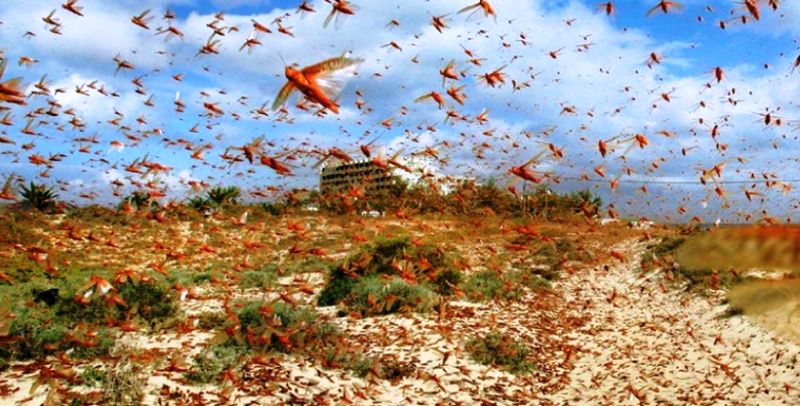
China is ready to send 1,00,000 specially-bred ducks to Pakistan to help it fight against the locust plague. Pakistan, at present is facing the worst locust attack in decades.
As per reports, the newly hatched ducklings from Zhejiang province in Eastern China will be the frontline weapons in this attack on the pests, billions of which have spread from East Africa to different parts of Pakistan, ruining thousands of hectares of farmland.
It cannot be immediately verified if these will be the same 1, 00,000 ducks stationed as of now, according to CGTN, in Xinjiang province (northwest China) along its border with Pakistan-Occupied-Kashmir.
Beijing has already send a team of experts from China’s ministry of agriculture & rural affairs, who are visiting the worst-affected areas like Balochistan, Sindh, and Punjab provinces to coordinate control measures, according to report.
Ningbo news from Zhejiang reported that the “disciplined” duck army from Beijing is ready.
A researcher at Zhejiang Academy of Agricultural Sciences, Lu Lizhi, explained as to why ducks are a dangerous enemy to rampant locusts as compared to chickens etc.
Lu said, “Ducks like to live in groups & they are more convenient to manage than chickens. They have stronger vitality, foraging ability & resistance to cold, which is suitable for survival in the wild”.

This means deploying one duck is equal to destroying a family of locusts.
Lu added that “A chicken can eat 70 locusts in a day while a duck can eat over 200, which has three times the combat capacity. Moreover, ducks eat locusts in a carpet-like manner”.
Ducks are also more disciplined than birds and frogs, which are also natural enemies of locusts. Reports said that duck ‘Guo Shao No. 1”’ from Zhejiang’s Shaoxing region will lead the fight.
Lu said amongst the Shaoxing ducks, the “mallard duck of ‘ma duck’ is big in size with strong predation ability, making it the first choice for locust control”. It must be noted that the ‘ma duck’ has a great fighting record.
Locusts can be controlled in two ways - biologically or through pesticides. From the context of environmental protection, benefits of biological control are more.
Lu told that “The former has high killing costs & pesticide residues while the latter has no environmental pollution and can repair the biological chain”.















